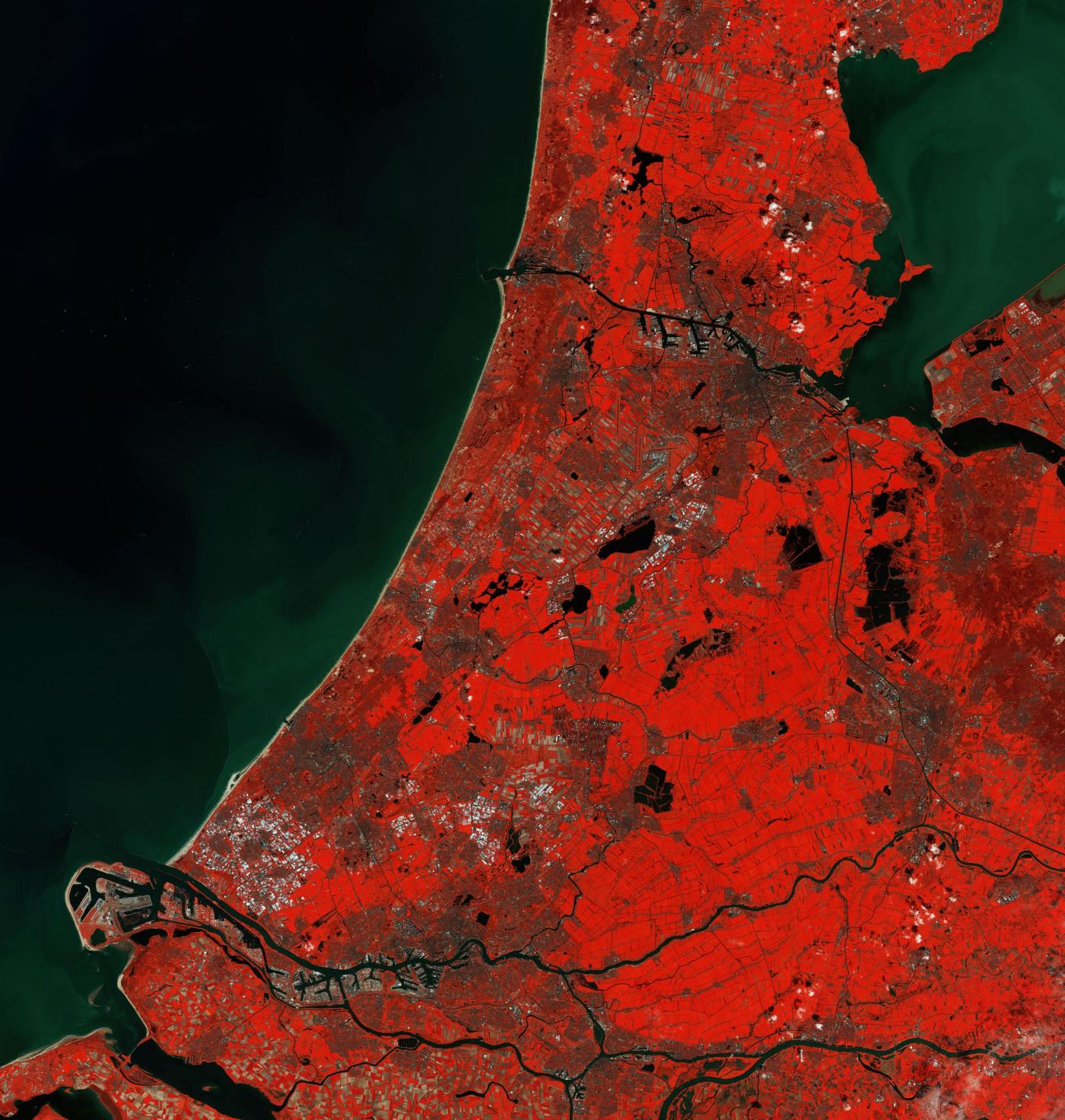"European climate research institute Copernicus would be valuable asset for UU"

The Copernicus Programme is a European Union research programme that observes the earth system. Two elements of the programme are the Copernicus Services, which use satellites to collect data for the earth and climate observation programme and create weather models, among other things. Copernicus Services are carried out by the European Centre for Medium-Range Weather Forecasts (the ECMWF) in Reading, England. “With Brexit approaching, the ECMWG asked about half a year ago which EU country would like to house the Copernicus Services,” says Wilco Hazeleger, who’s very familiar with the programme. And yes, he would love to have them as his neighbour at the Utrecht Science Park.
“If you’re looking for weather and climate data, you’ll end up here. Whether we’re talking about the KNMI (Royal Netherlands Meteorological Institute), or engineering companies, or social organisations. An international party like this, with a global presence, is something we don’t have at the Science Park. A global player like this would strengthen our sustainability profile. If they’re so physically close to us, it would encourage collaborations. We could exchange staff, share knowledge, and strengthen our education. Students could do internships there, for example.”
Hazeleger joined forces with Wageningen University, already a regular partner for the climate scientists, and received the support of TNO, Deltares, and the KNMI. The university board shared Hazeleger’s hopes, as did the municipality and province of Utrecht. “Other universities in the Netherlands were interested as well, but eventually, the government chose us. Because of that, we can make a bid as a country now.” The proposal should be with the ECMWF in England by October. But the Netherlands isn’t the only country that’s making a bid – it has nine other countries to compete with.
Asset: how fundamental research finds its way to practice
At the moment, people are working hard to create the bid book. This text will explain what the Netherlands, Utrecht, and the Utrecht Science Park have to offer to Copernicus Services. Aside from its central location relative to Brussels and London (which is 70km away from Reading), the good digital network, the international environment (Copernicus Services employ people from several European countries), and the high-quality education, there is also of course the top-notch research on environment, climate, and sustainability that’s done by both Utrecht and Wageningen University, says Hazeleger. The proximity to several other universities and knowledge institutions with high-profile centres with which Copernicus Services could collaborate, is another advantage. But, Hazeleger says, the unique selling point is how the Netherlands manages to apply climate knowledge.
With this, he refers to the fact that knowledge parties, private parties, and public parties that create policy, work together in such a way that you can see the results of fundamental research. That’s what makes our country interesting for Copernicus Services, says Hazeleger, “because they want to do the same. That’s something we’re doing really well in the Netherlands. It’s our biggest asset.”
Millions for reeling in Copernicus
The success or failure of the Utrecht bid depends, of course, on the offer of its competitors. Five of the ten countries that are in the running, have publicly stated that they will make a bid. Aside from the Netherlands, these are Germany, Spain, Austria, and France. Hazeleger: “Macron has mentioned in the media how much he’d love to house the institute, and says he’s willing to spend a lot of money on this. France and Germany are countries that can more easily promise huge amounts of money.” The Netherlands’ budget will remain a secret to limit the amount of information leaked to competitors, Hazeleger says, but according to newspaper AD, the province is budgeting 2 million euros to contribute to housing of the institute, which requests 25 years of free housing. Utrecht municipal council members were told that millions of euros are involved (letter from the board of mayor and aldermen), but that it could also bring Utrecht 900 new jobs.
The UU will have to contribute as well, Hazeleger says, for example in housing. But it’s also possible that new research programmes will be established. “We’re still thinking about our bid, but I can imagine that we could also set up lines of research that are interesting for the Copernicus to join. We could, for instance, do so with the Ruysdael consortium, in which Utrecht collaborates with several other Dutch universities on climate research.”
In December, the ECMWF will announce which country it’s chosen. “If they choose Utrecht, the Copernicus Services employees will move in 2021.” Eventually, a total of 250 employees will have to emigrate, but they wouldn’t all come to Utrecht at the same time. “The people who’d come here are knowledge workers who don’t need labs; they need computers. We can house the first ones who come here by shifting some workplaces around.” Eventually, the data collectors will get their own building at the Utrecht Science Park.